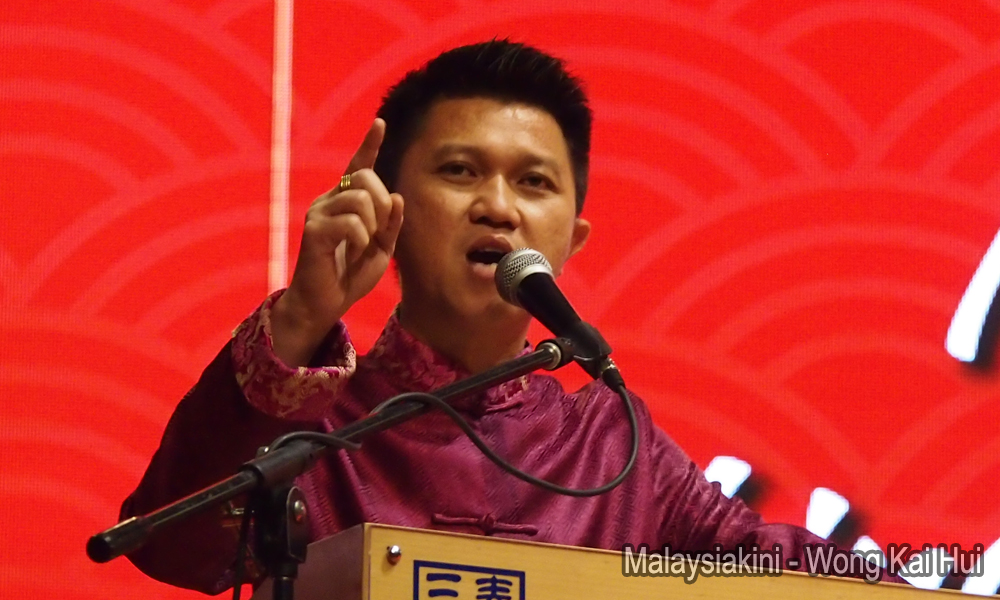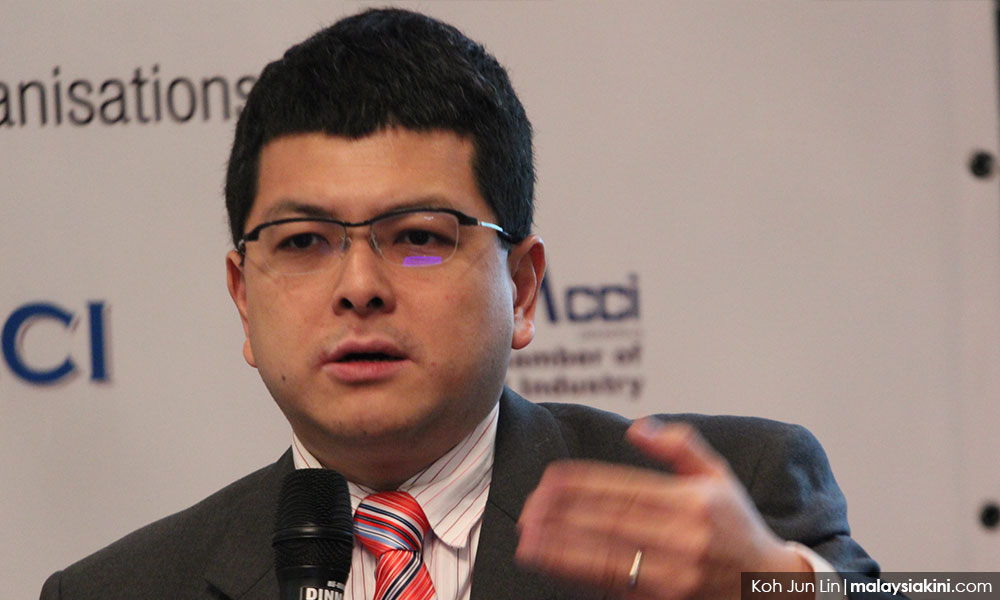Analysts: Pulau Batu Puteh withdrawal pragmatic, not likely a quid pro quo

Malaysia’s withdrawal of its Pulau Batu Puteh suit against Singapore is more likely driven by pragmatic considerations rather than some kind of quid pro quo, according to foreign policy analysts.
Both the Asian Strategy and Leadership Institute's (Asli) senior advisor on international affairs Oh Ei Sun and former Malaysian ambassador Dennis Ignatius separately noted that Malaysia is unlikely to succeed in overturning the International Court of Justice’s 2008 ruling that Singapore has sovereignty over the rocky outcrop.
“It’s a realistic move, as further proceedings of the case would have meant mounting legal fees in engaging the foreign legal experts with an uncertain winnability,” said Oh, noting that such pragmatism is characteristic of Prime Minister Dr Mahathir Mohamad’s behaviour.
Ignatius told Malaysiakini that the government is merely recognising that it is futile to pursue the case and it is seen as an unnecessary impediment to good relations between Malaysia and Singapore.
“We’ll have to wait and see if there was any quid pro quo but it seems to me that if you want to use an issue like this as a bargaining chip, you don’t give it away before negotiations even start,” he told Malaysiakini.
Ignatius and Oh were responding to separate e-mail queries on the matter from Malaysiakini.

MCA youth leader Chong Sin Woon (photo) questioned the government’s move to withdraw its suit on Pulau Batu Puteh and said it “almost” amounts to treason.
Chong said Malaysia had found fresh evidence to support a review of the ICJ verdict last year and was therefore obliged to exhaust all legal avenues in pursuing the matter further.
"Things seemed to be finally coming around for us Malaysians. However, out of nowhere, Singapore reported that our new government has decided to drop the appeal. Why this sudden decision?
"It is more than a little odd to do this almost immediately after cancelling the Kuala Lumpur-Singapore High-Speed Rail (HSR) project.
"From the eyes of a bystander, it certainly looks like the sovereignty over Pulau Batu Puteh has been used as a sacrificial lamb to appease our project partner," Chong added.
The ICJ decision was due for a hearing on June 18 but the ICJ said it had been informed by Malaysia on May 28 that it would no longer pursue the case.
Prior to that, Mahathir had said the government was reconsidering its application to the ICJ to review the Pulau Batu Puteh case and instead wanted to expand development in Batuan Tengah (Middle Rocks).
Both Pulau Batu Puteh and Batuan Tengah are among the rocky outcrops located in the Singapore Straits that were subject to the 2008 ICJ ruling. The ICJ had awarded sovereignty over Batuan Tengah to Malaysia.
The last of the disputed features in 2008 is Tubir Selatan (South Ledge). The ICJ said it is a low-tide elevation and belonged to the state in the territorial waters of which it is located.
Adjustments to be made
Since all three features are incapable of sustaining human habitation or economic life on their own, the UN Convention on the Law of the Sea (Unclos) stipulates that whichever state has sovereignty over them is not entitled to either an exclusive economic zone (EEZ) or continental shelf rights extending from their claims on the features.
However, since Pulau Batu Puteh and Batuan Tengah are permanently above sea level, Unclos stipulates that the state that has sovereignty over them is also entitled to territorial water claims to the surrounding sea.

Mahathir had also announced on May 28 that the High-Speed Rail (HSR) rail project linking Kuala Lumpur and Singapore would be scrapped. He said the decision is final but would take time to implement, besides costing Malaysia nearly RM500 million in penalties.
Meanwhile, when asked about the future outlook of Malaysia-Singapore relations, both experts said they expected the existing good cooperation to continue.
Ignatius said both countries are closely economically linked so good relations are a necessity.
“However, the Pakatan Harapan government will be far more discerning when it comes to pursuing Malaysia’s interests (compared to BN). In this sense, Singapore will have to adjust to some new realities.
“Given all that is at stake bilaterally, however, I have no doubt that both sides will make the adjustments and get on with the job of building close and mutually-beneficial relations,” Ignatius said.
Oh (photo above) said both countries would continue to work together whenever opportunities arise.
“There are also perhaps unexpected commonalities between the two governments in regional and strategic issues, such as dealing with any attempt at regional dominance by powers within and without the region,” he added. -Mkini
✍ Sumber Pautan : ☕ Malaysians Must Know the TRUTH
Kredit kepada pemilik laman asal dan sekira berminat untuk meneruskan bacaan sila klik link atau copy paste ke web server : https://ift.tt/2xPTVjX
(✿◠‿◠)✌ Mukah Pages : Pautan Viral Media Sensasi Tanpa Henti. Memuat-naik beraneka jenis artikel menarik setiap detik tanpa henti dari pelbagai sumber. Selamat membaca dan jangan lupa untuk 👍 Like & 💕 Share di media sosial anda!




















Post a Comment